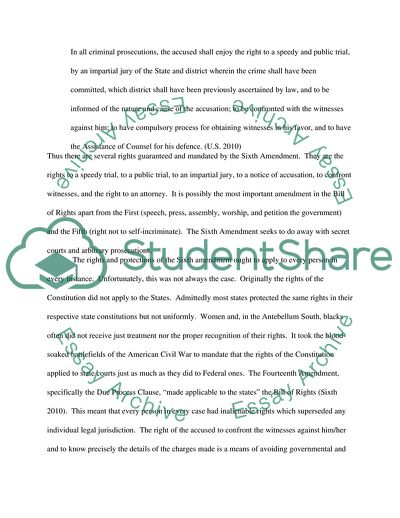Cite this document
(The Sixth Amendment: the Right to Notice of Charge/Confrontation of Report Example | Topics and Well Written Essays - 1500 words, n.d.)
The Sixth Amendment: the Right to Notice of Charge/Confrontation of Report Example | Topics and Well Written Essays - 1500 words. https://studentshare.org/law/1736205-the-right-to-notice-of-chargeconfrontation-of-witness6th-ammendment
The Sixth Amendment: the Right to Notice of Charge/Confrontation of Report Example | Topics and Well Written Essays - 1500 words. https://studentshare.org/law/1736205-the-right-to-notice-of-chargeconfrontation-of-witness6th-ammendment
(The Sixth Amendment: The Right to Notice of Charge/Confrontation of Report Example | Topics and Well Written Essays - 1500 Words)
The Sixth Amendment: The Right to Notice of Charge/Confrontation of Report Example | Topics and Well Written Essays - 1500 Words. https://studentshare.org/law/1736205-the-right-to-notice-of-chargeconfrontation-of-witness6th-ammendment.
The Sixth Amendment: The Right to Notice of Charge/Confrontation of Report Example | Topics and Well Written Essays - 1500 Words. https://studentshare.org/law/1736205-the-right-to-notice-of-chargeconfrontation-of-witness6th-ammendment.
“The Sixth Amendment: The Right to Notice of Charge/Confrontation of Report Example | Topics and Well Written Essays - 1500 Words”. https://studentshare.org/law/1736205-the-right-to-notice-of-chargeconfrontation-of-witness6th-ammendment.


